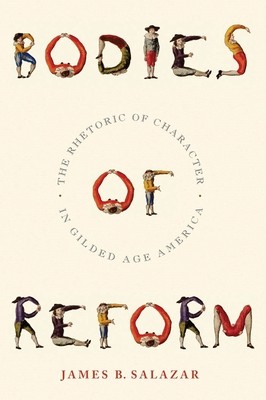
- We will send in 10–14 business days.
- Author: James B Salazar
- Publisher: New York University Press
- ISBN-10: 0814741312
- ISBN-13: 9780814741313
- Format: 15.4 x 22.7 x 2 cm, softcover
- Language: English
- SAVE -10% with code: EXTRA
Reviews
Description
Part of the American Literatures Initiative Series
From the patricians of the early republic to post-Reconstruction racial scientists, from fin de siècle progressivist social reformers to post-war sociologists, character, that curiously formable yet equally formidable "stuff," has had a long and checkered history giving shape to the American national identity. Bodies of Reform reconceives this pivotal category of nineteenth-century literature and culture by charting the development of the concept of "character" in the fictional genres, social reform movements, and political cultures of the United States from the mid-nineteenth to the early-twentieth century. By reading novelists such as Herman Melville, Mark Twain, Pauline Hopkins, and Charlotte Perkins Gilman alongside a diverse collection of texts concerned with the mission of building character, including child-rearing guides, muscle-building magazines, libel and naturalization law, Scout handbooks, and success manuals, James B. Salazar uncovers how the cultural practices of representing character operated in tandem with the character-building strategies of social reformers. His innovative reading of this archive offers a radical revision of this defining category in U.S. literature and culture, arguing that character was the keystone of a cultural politics of embodiment, a politics that played a critical role in determining-and contesting-the social mobility, political authority, and cultural meaning of the raced and gendered body.
EXTRA 10 % discount with code: EXTRA
The promotion ends in 7d.12:17:06
The discount code is valid when purchasing from 10 €. Discounts do not stack.
- Author: James B Salazar
- Publisher: New York University Press
- ISBN-10: 0814741312
- ISBN-13: 9780814741313
- Format: 15.4 x 22.7 x 2 cm, softcover
- Language: English English
Part of the American Literatures Initiative Series
From the patricians of the early republic to post-Reconstruction racial scientists, from fin de siècle progressivist social reformers to post-war sociologists, character, that curiously formable yet equally formidable "stuff," has had a long and checkered history giving shape to the American national identity. Bodies of Reform reconceives this pivotal category of nineteenth-century literature and culture by charting the development of the concept of "character" in the fictional genres, social reform movements, and political cultures of the United States from the mid-nineteenth to the early-twentieth century. By reading novelists such as Herman Melville, Mark Twain, Pauline Hopkins, and Charlotte Perkins Gilman alongside a diverse collection of texts concerned with the mission of building character, including child-rearing guides, muscle-building magazines, libel and naturalization law, Scout handbooks, and success manuals, James B. Salazar uncovers how the cultural practices of representing character operated in tandem with the character-building strategies of social reformers. His innovative reading of this archive offers a radical revision of this defining category in U.S. literature and culture, arguing that character was the keystone of a cultural politics of embodiment, a politics that played a critical role in determining-and contesting-the social mobility, political authority, and cultural meaning of the raced and gendered body.


Reviews